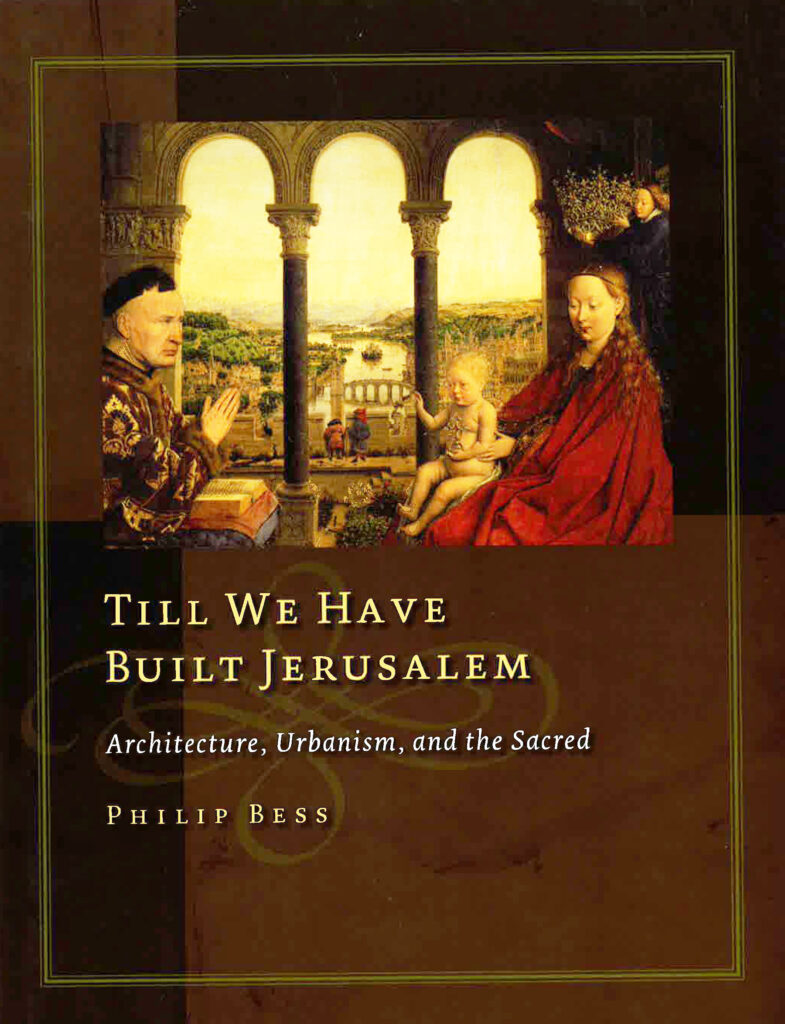Till We Have Built Jerusalem: Architecture, Urbanism, and the Sacred
by Philip Bess
“The city comes into existence…for the sake of the good life.” So wrote Aristotle nearly 2,400 years ago, articulating an idea that prevailed throughout most of Western culture and the world until the environmental consequences of the Industrial Revolution called into question the goodness of traditional city life. Urban history ever since — from England’s early-nineteenth-century hygiene laws to mid-twentieth-century modernist architecture and planning to today’s New Urbanism — has consisted of efforts to ameliorate the consequences of the industrial city by either embracing or challenging the idealization of nature that has followed it. Philip Bess’s Till We Have Built Jerusalem puts forth fresh arguments for traditional architecture and urbanism, their relationship to human flourishing, and the kind of culture required to create and sustain traditional towns and city neighborhoods. Bess not only dissects the questionable intellectual assumptions of contemporary architecture, he also shows how the individualist ethos of modern societies finds physical expression in contemporary suburban sprawl, making traditional urbanism difficult to sustain. He concludes by considering the role of both the natural law tradition and communal religion in providing intellectual and spiritual depth to contemporary attempts to build new — and revive existing — traditional towns and cities, attempts that at their best help fulfill our natural human desires for order, beauty, individual freedom and communal solidarity.
What the critics say about Till We Have Built Jerusalem:
As Philip Bess understands, Western religious belief and traditional Western urbanism once largely coincided. In this splendid collection of essays and addresses written over two decades, Bess aims at turning coincidence into a new cooperation. With an optimism grounded in religious faith and historical insight, he confronts the kulturkampf between the New Urbanists on one side, and modernists, secularists, environmentalists, libertarians and critical theorists on the other. Bess engages that struggle with alacrity and wit. How many practitioners of architecture read the Bible, Aristotle, Augustine, and Tocqueville, much less Alasdair MacIntyre, Philip Rieff, and Peter Berger?
–Jonathan B. Imber, Class of 1949 Professor in Ethics and Professor of Sociology, Wellesley College
Among the intellectual contests of modernity, none has longer term consequences than the place and character of the human habitat in nature. Refusing the reductionist locksteps of both environmentalism and academic theory alike, Philip Bess ties his case for architecture and urbanism to the broad tradition of the West, where both God and man have standing. His arguments are erudite, radical, clear, and convincing….
—Andres Duany, Principal, DPZ Architects and Planners, co-Founder, The Congress for the New Urbanism
